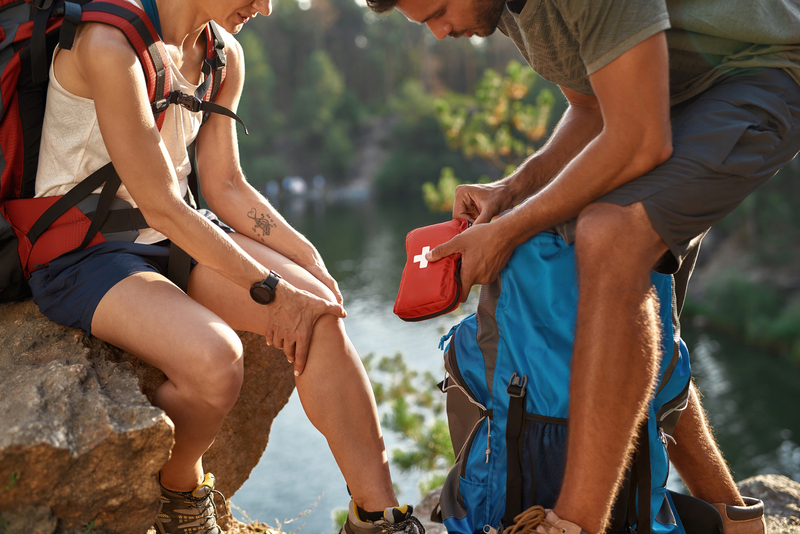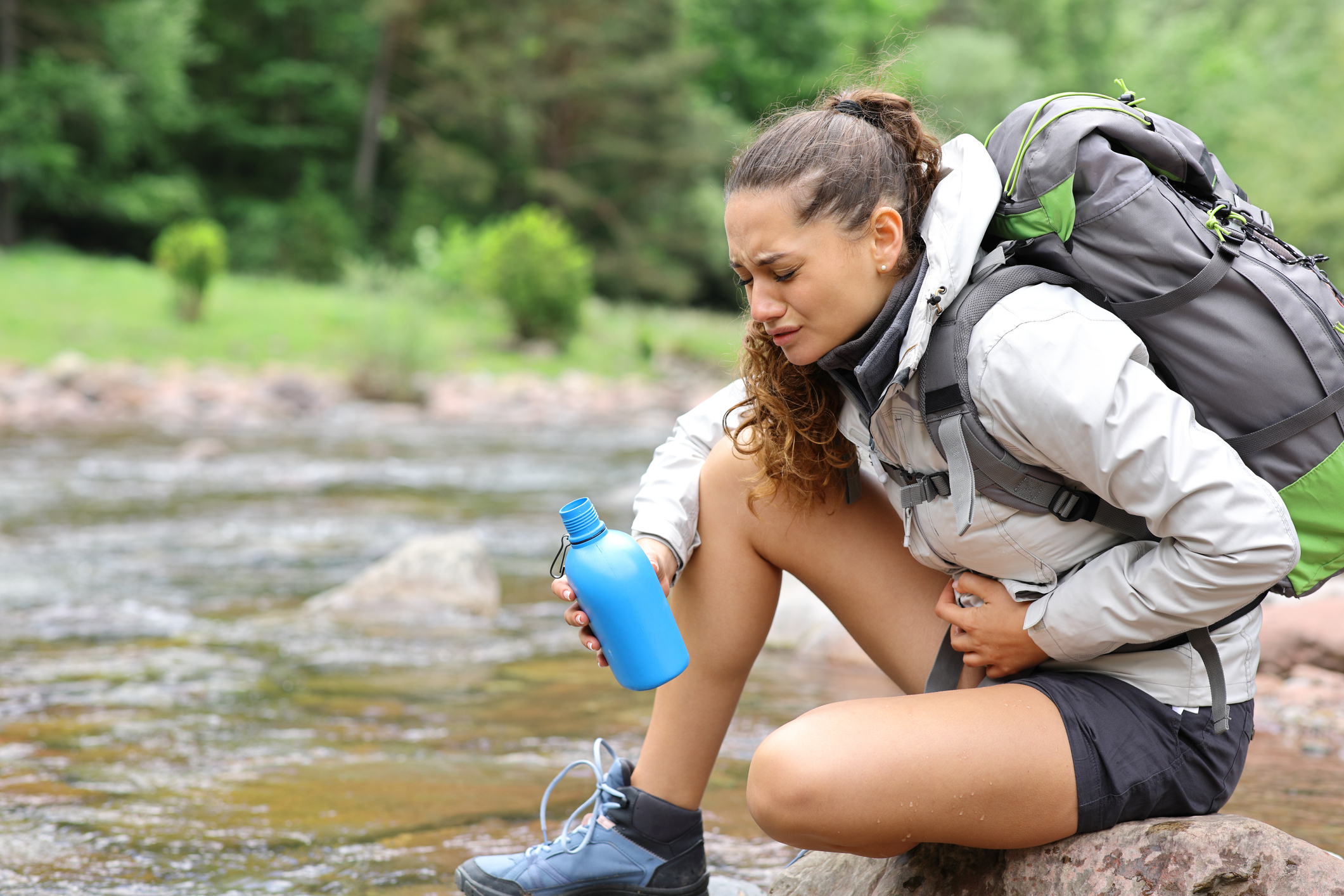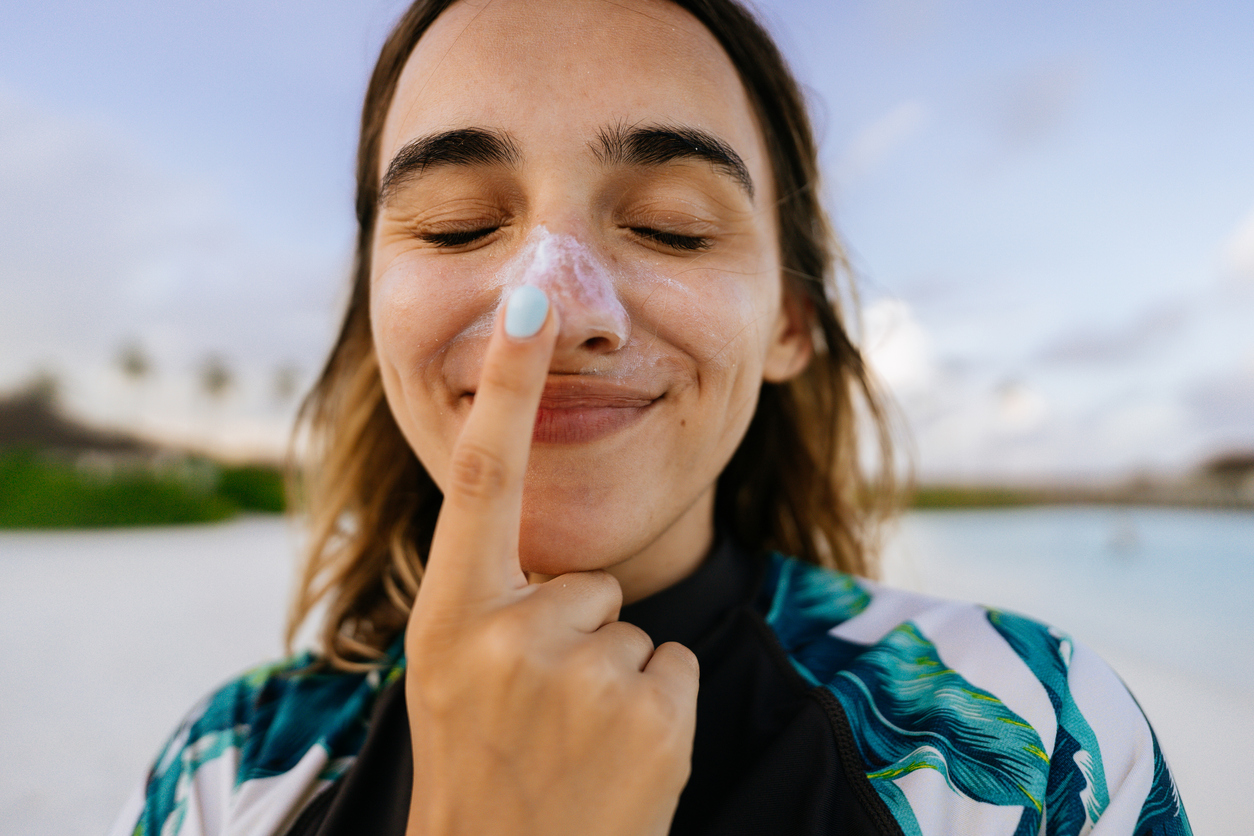
Packing checklist for emergencies while travelling

Are you planning a holiday at the beach, in the mountains, with children or overseas? Here are the emergency items that you should not forget to pack into your suitcase, backpack or beach bag.
Emergency first-aid kit for the mountains
“The best mountain first-aid kit is the one you don’t need,” says Daniel Walter, a family doctor and emergency physician with many years of service with the Swiss air rescue service, Rega. His most important tip: “Don’t overdo it, and turn around if you feel like you need to.”
For mountain tours it is important that a first-aid kit is light and small. For this purpose, pack less medicine and instead opt for bandages, disinfectant and a splint that can be folded; “that’s the best for every sprained wrist or foot.” Also don’t forget a multifunctional tape. With a multifunctional tape you can make a makeshift closure for a lacerated contusion, tape a sprained ankle or even mend the sole of a shoe.
Doctor’s tip: get a basic understanding of medicine, because the best first-aid kit is useless if you don’t know how to use it.

First-aid kit for beach holidays
“The purpose of a first-aid kit is to have something with you for emergencies,” says Elvan Kut, pharmacist and lecturer in pharmacy at federal technology institute ETH Zurich. She advises to always have something for digestion issues, a painkiller, something against insect bites and very importantly, a good sunscreen.
Her special tip goes out to women: “During the holidays we are often in wet bathing suits, many have sexual intercourse more often than usual, which is why bladder infections are very typical for the summer holidays.” It pays to take precautions. “Take a few sachets of cranberry with you. You can take them prophylactically and they are very good against bladder infections”.
Pharmacist’s tip: take small bottles of pharmacy-grade saline solution with you. This is suitable for washing out eyes, rinsing in the nose and can also be used to rinse wounds.
What you need for a long-distance trip
Whether it’s Thailand, Tanzania or Costa Rica, pack a fever thermometer when you travel to tropical and subtropical countries. This advice comes from Esther Künzli, co-director of the Swiss Centre for Tropical and Travel Medicine. “People often call our office and say they have a fever. But they can’t say how high – that makes it difficult to assess,” says Künzli.
Fevers can be triggered by mosquito bites, which could lead to malaria, dengue, chikungunya. “A mosquito spray definitely belongs in the first-aid kit,” says Künzli. For journeys to high-risk malaria areas don’t forget to take anti-malaria medication.
Travellers’ diarrhoea is also typical. Take something with you for situations in which you cannot access a restroom immediately, for example, if you are on a bus trip or on a safari. Otherwise, experts advise using diarrhoea medication rather conservatively. “The purpose of diarrhoea is to flush the pathogens out of the intestine. The longer they are in the intestine, the greater the risk of some pathogens becoming worse than just diarrhoea,” says Künzli.
Because of the large temperature fluctuations between the air-conditioned buildings and the heat outside, colds also occur more often. Esther Künzli therefore advises packing a nasal spray.
Expert’s tip: distribute the medicine you pack between more than one item of luggage. If one suitcase gets lost, you will still have some medications on hand.

Travelling with children
“More important than any first-aid kit: pack common sense,” says Bernard Egg, a paediatrician in Zurich. If your child is feeling poorly and you can’t explain why, or if fever reducers don’t work and urine production decreases or the child is having trouble breathing: consult a local doctor or contact your paediatrician at home. “That’s where I would hand over the responsibility to the doctor,” says Egg.
“Otherwise, often when travelling, it is the mundane things like viral respiratory infections or mosquito bites or blisters that get scratched open in warmer areas that you should pack something for.”
He recommends packing a disinfectant gel. An antihistamine should also be included, preferably in liquid form: “Then you are prepared for all eventualities, for mosquito bites as well as for jellyfish stings or other allergic reactions,” says Egg.
Tip from the paediatrician: antibiotics can be left at home. In the case an antibiotic might be necessary, it is better to seek the advice of a specialist at the holiday destination. Exceptions are regions where medical care is not guaranteed.

In compliance with the JTI standards
More: SWI swissinfo.ch certified by the Journalism Trust Initiative






























You can find an overview of ongoing debates with our journalists here . Please join us!
If you want to start a conversation about a topic raised in this article or want to report factual errors, email us at english@swissinfo.ch.